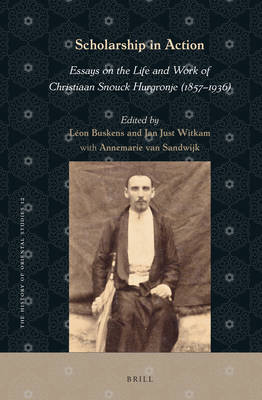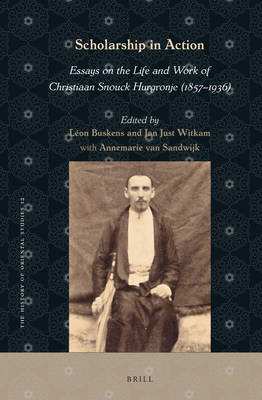
- Afhalen na 1 uur in een winkel met voorraad
- Gratis thuislevering in België vanaf € 30
- Ruim aanbod met 7 miljoen producten
- Afhalen na 1 uur in een winkel met voorraad
- Gratis thuislevering in België vanaf € 30
- Ruim aanbod met 7 miljoen producten
Zoeken
Scholarship in Action: Essays on the Life and Work of Christiaan Snouck Hurgronje (1857-1936)
€ 273,45
+ 546 punten
Omschrijving
The Dutch scholar Christiaan Snouck Hurgronje (1857-1936) was one of the most famous orientalists of his time. He acquired early fame through his daring research in Mecca in 1884-85, masterly narrated in two books and accompanied by two portfolios of photographs. As an adviser to the colonial government in the Dutch East Indies from 1889 until 1906, he was on horseback during campaigns of "pacification" and published extensively on Indonesian cultures and languages. Meanwhile he successively married two Sundanese women with whom he had several children. In 1906 he became a professor in Leiden and promoted together with colleagues abroad the study of modern Islam, meant to be useful for colonial purposes. Despite his considerable scholarly, political, and cultural influence in the first decades of the twentieth century, nowadays Snouck Hurgronje has been almost forgotten outside a small circle of specialists, since he mainly published in Dutch and German. The contributors to this volume each offer new insights about this enigmatic scholar and political actor who might be considered a classic proponent of "orientalism." Their detailed studies of his life and work challenge us to reconsider common views of the history of the study of Islam in European academia and encourage a more nuanced "post-orientalist" approach with ample attention for cooperation, exchange, and hybridization.
Contributors:
Contributors:
Specificaties
Betrokkenen
- Uitgeverij:
Inhoud
- Aantal bladzijden:
- 906
- Taal:
- Engels
- Reeks:
- Reeksnummer:
- nr. 12
Eigenschappen
- Productcode (EAN):
- 9789004513594
- Verschijningsdatum:
- 6/01/2022
- Uitvoering:
- Hardcover
- Formaat:
- Genaaid
- Afmetingen:
- 155 mm x 235 mm
- Gewicht:
- 1624 g

Alleen bij Standaard Boekhandel
+ 546 punten op je klantenkaart van Standaard Boekhandel
Beoordelingen
We publiceren alleen reviews die voldoen aan de voorwaarden voor reviews. Bekijk onze voorwaarden voor reviews.










